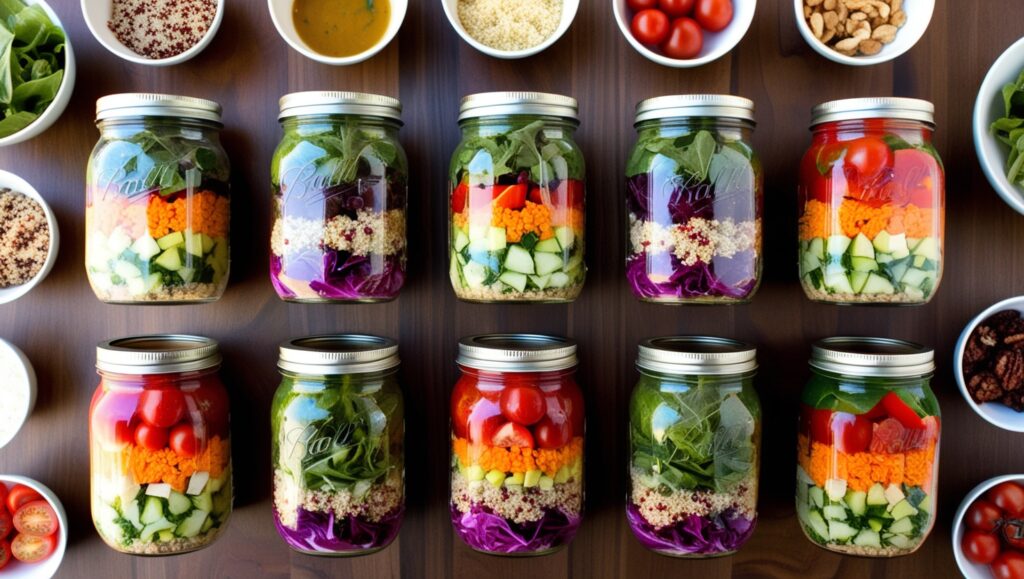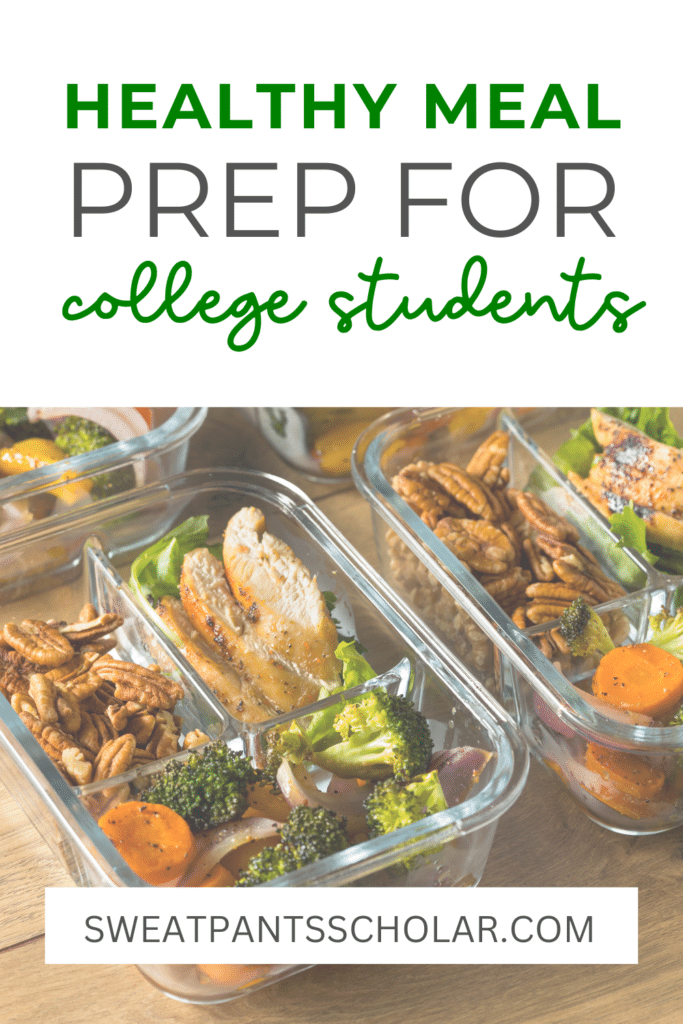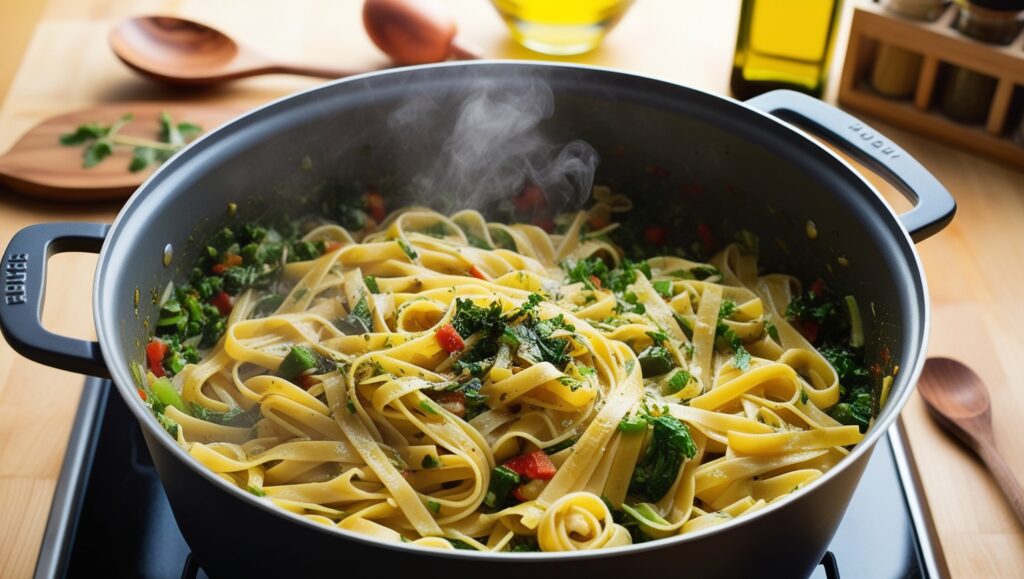Eating healthy, or even just normal meals in college is such a chore. With our extremely busy schedules, it’s almost impossible to fill your body with all the nutrients it actually needs. But as we all know, eating is important, and you get extra points if you’re eating healthily. So, introducing drumroll please, the concept of meal prepping!!! I know we’re all familiar with it, but if you’re just starting out, here is the basic definition of meal prepping:
Meal prepping is basically the concept of preparing whole meals or dishes ahead of schedule.
What Are the Benefits of Meal Prepping?
- Helps You Save Money: Since you’re preparing your meals beforehand, you’re less likely to spend money unnecessarily. Think about it; no more impulse buys at the cafeteria or ordering takeout because you’re too tired to cook. You’ll have everything you need right in your fridge.
- Promotes Healthy Eating: People normally meal prep to improve their diets, and it’s an incredibly great way to start your healthy eating journey if you have any fitness goals or just plan to eat healthily overall. By planning your meals ahead of time, you can ensure you’re getting a balanced diet, full of the nutrients your body needs to thrive during those late-night study sessions.
- Reduces Stress: I don’t know about you, but just thinking of cooking a large meal gives me anxiety. Because I start to think, What will I make? What time will I have? Is it sabotaging my routine? Do I have to skip classes? Just with these thoughts, I’m already stressed before I start. So if I make my meals for the week on a Sunday, I don’t have to think about this anymore.
- Saves Time: Creating meals is very time-consuming, especially for us who are in college. Preparing whole meals three times a day? Yeah, that’s probably not happening. You’re more likely to only have one meal and snack throughout the day. So meal prepping could save you a whole bunch of time and energy.

How To Get Started With Meal Prep
- Assess Your Week: Every schedule is different, so it’s important for you to check out your own schedule and decide what meals you’d like to make in advance and how many you will need. If you have late classes on certain days, make sure those are your quick meal days, and save more elaborate meals for when you have time to relax and cook.
- Choose Versatile Ingredients: Focus on ingredients that can be used in multiple recipes (e.g., rice, beans, chicken). This not only saves money but also ensures you don’t get bored with your meals. For example, you can cook a batch of quinoa and use it in salads, as a side for dinner, or even for breakfast with some added fruits and nuts.
- Select Your Recipes: Pick 3 to 4 core recipes that you will focus on. It’ll be boring to eat the same thing every day, so having a small variety will make this fun and less bland for you. If you’re a pasta lover, maybe one of your recipes could be a simple pasta salad that can be eaten cold or warm.
- Rotate Your Recipes: See how you will be rotating these recipes for the week. Pick things that will be unique to you, things that you will enjoy. It’s okay if you choose to eat your day 3 lunch on day 2—if that’s what you’re feeling, that’s fine. You want this to be as flexible as possible to fit your life and cravings.

Affordable Grocery Shopping Tips
- Shop Smart: Be a coupon keeper and discount hunter. Remember, we have a tight budget we’re working with, so if you can clip off some money somewhere, you gotta do it. There are also apps like Honey or Rakuten that can help you find discounts and cashback offers online.
- Buy in Bulk: Specifically, non-perishable foods. This will save you a lot of time and money. Things like rice, pasta, oats, and canned beans are your best friends. You can store these items for months and they make for great meal bases.
- Seasonal and Local Produce: Grabbing seasonal fruits and veggies from your local markets is usually a more affordable and healthier option because the food is fresher. Though it really does depend on your preference here. If you’re okay with mall fruits and veggies, that’s okay too. Sometimes, I love going to the farmers’ market just to get inspired by what’s fresh and in season.
Simple Meal Prep Ideas to Get You Started
Overnight Oats and Smoothie Packs: Overnight oats are the perfect grab-and-go breakfast. All you need to do is mix oats with your choice of milk (dairy or non-dairy), add some fruits, nuts, or seeds, and let it sit in the fridge overnight. For smoothie packs, just portion out your favorite fruits, veggies, and protein powder into freezer bags. In the morning, dump a pack into the blender with some liquid and you’re good to go!
One-Pot Meals: One-pot meals are lifesavers when you don’t want to deal with a mountain of dishes. Think chili, pasta, or stir-fry. You can cook a big batch on Sunday and portion it out for the week. One of my favorites is a veggie-packed quinoa stir-fry that’s super filling and easy to make.
Mason Jar Salads: Mason jar salads are great because they stay fresh for days and are easy to take with you to class. The trick is to layer the ingredients properly: dressing at the bottom, followed by hearty ingredients like beans or grains, then your veggies, and finally leafy greens at the top. Just shake it up when you’re ready to eat.
Freezer-Friendly Dishes: Make a big batch of something freezer-friendly, like lasagna or soup, and freeze portions for later. This way, you always have a backup meal for those days when you just can’t even. It’s like having your own healthy TV dinner, minus the sodium and mystery ingredients.
Related Posts:
- 7 Quick and Easy College Friendly High Protein Breakfast Recipes
- 10 Quick and Budget Friendly Snacks You Can Make In Your Dorm Room

Tips for Staying Consistent with Meal Prep
Set a Routine: Set aside a specific day of the week for meal prep. I recommend Sunday because it’s generally the least busy and the start of the week. Put on your favorite playlist or podcast, and make it a fun event. Treat it like self-care.
Use a Planner: I typically don’t use apps for my meal prep, I use an Excel sheet. It helps me stay organized and ensures I’m not missing anything. There are also printable planners available on my shop with meal planners if you prefer pen and paper.
Start Small: I advise that you start with meal prepping one meal a week, and later build up to avoid overwhelm. Maybe start with just breakfast or lunch, and once you get the hang of it, add in more meals. The key is to make it manageable.
Common Challenges That Come With Meal Prepping
Burnout: Meal prepping should be a fun exercise, so don’t treat it like a chore. Switch up your recipes, pick special meals, and do whatever you can to make this exciting for you. If you feel yourself dreading it, take a week off, and just prep some snacks instead. Remember, this is supposed to make your life easier, not harder.
Lack of Time: Try to get some pre-cut veggies, meat, and other ingredients to save time. Use blenders or food processors to make this process quicker for you. There’s no shame in taking shortcuts, anything that helps you stick to your goals is a win.
Storage: Invest in some strong microwave-safe plastic containers to store your food. Glass containers are also a great option because they’re microwave-safe and don’t hold onto odors. If you’re limited on fridge space, consider using stackable containers to keep everything neat and organized.
Wrapping It Up
So there you have it—a quick guide to getting started with meal prepping. This has been such a game-changer for me, and I try my best to be as consistent as possible. But remember, meal prepping isn’t about perfection; it’s about finding what works for you and making your life easier. Take it easy, be kind to yourself, and do what works best for you.
If you’d like to get more tips on how to be the healthiest version of yourself and prioritize your well-being, sign up for my newsletter! And make sure to pin and share this post if you found it helpful.



